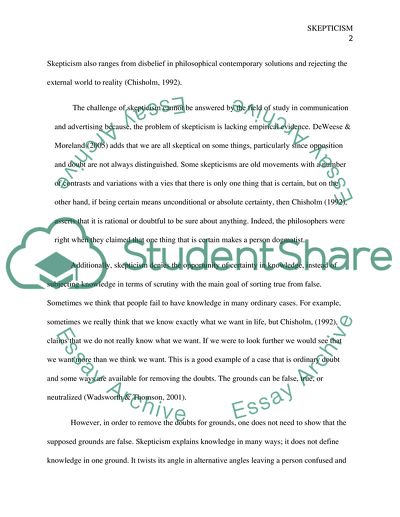Cite this document
(“The problem of Skepticism Essay Example | Topics and Well Written Essays - 1500 words”, n.d.)
Retrieved from https://studentshare.org/philosophy/1434515-the-problem-of-skepticism
Retrieved from https://studentshare.org/philosophy/1434515-the-problem-of-skepticism
(The Problem of Skepticism Essay Example | Topics and Well Written Essays - 1500 Words)
https://studentshare.org/philosophy/1434515-the-problem-of-skepticism.
https://studentshare.org/philosophy/1434515-the-problem-of-skepticism.
“The Problem of Skepticism Essay Example | Topics and Well Written Essays - 1500 Words”, n.d. https://studentshare.org/philosophy/1434515-the-problem-of-skepticism.


